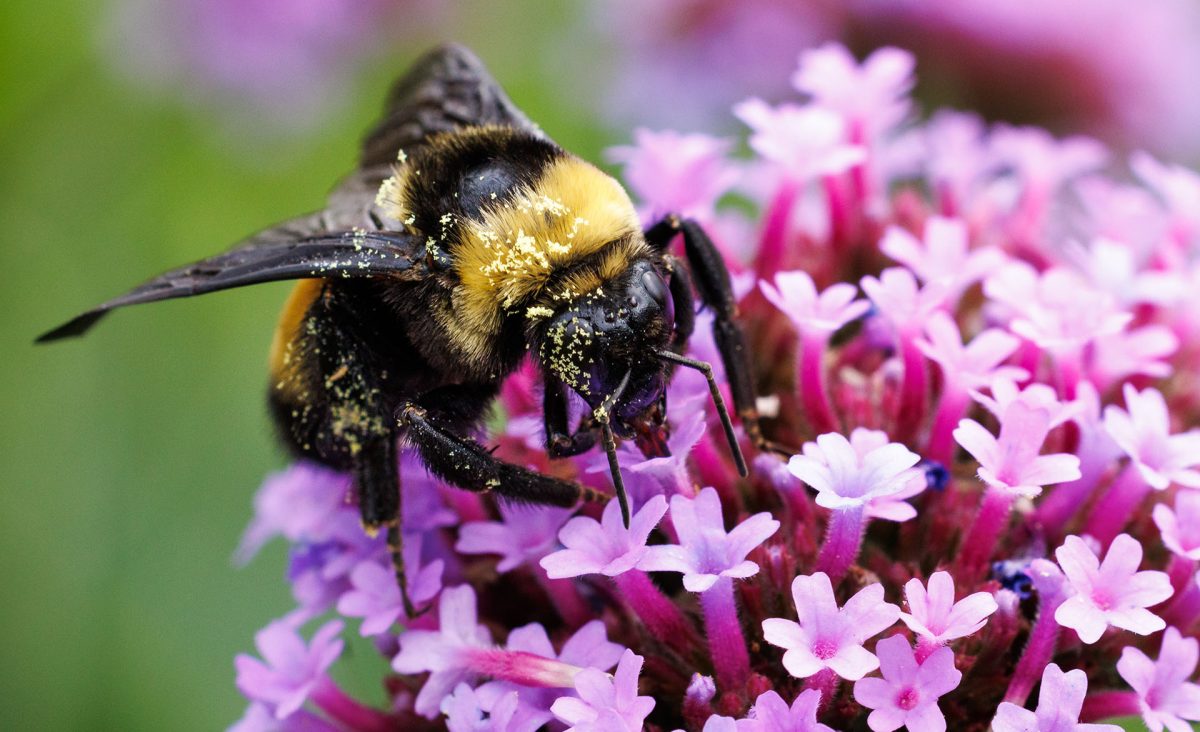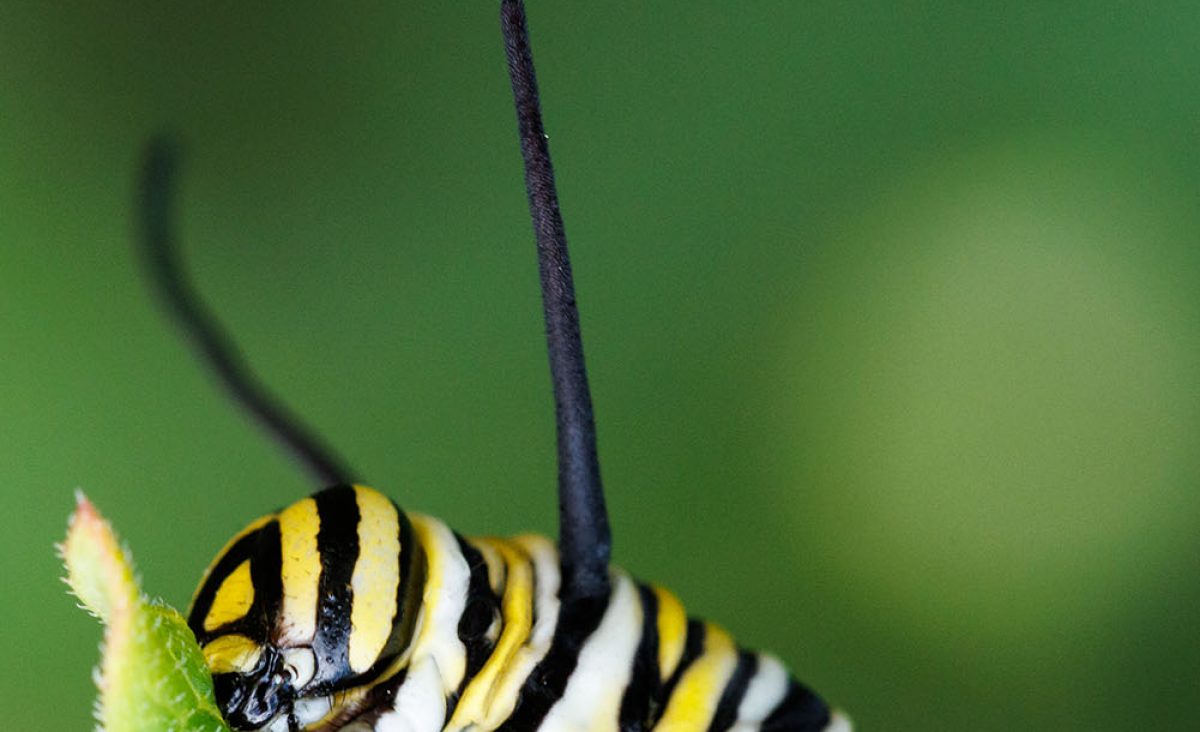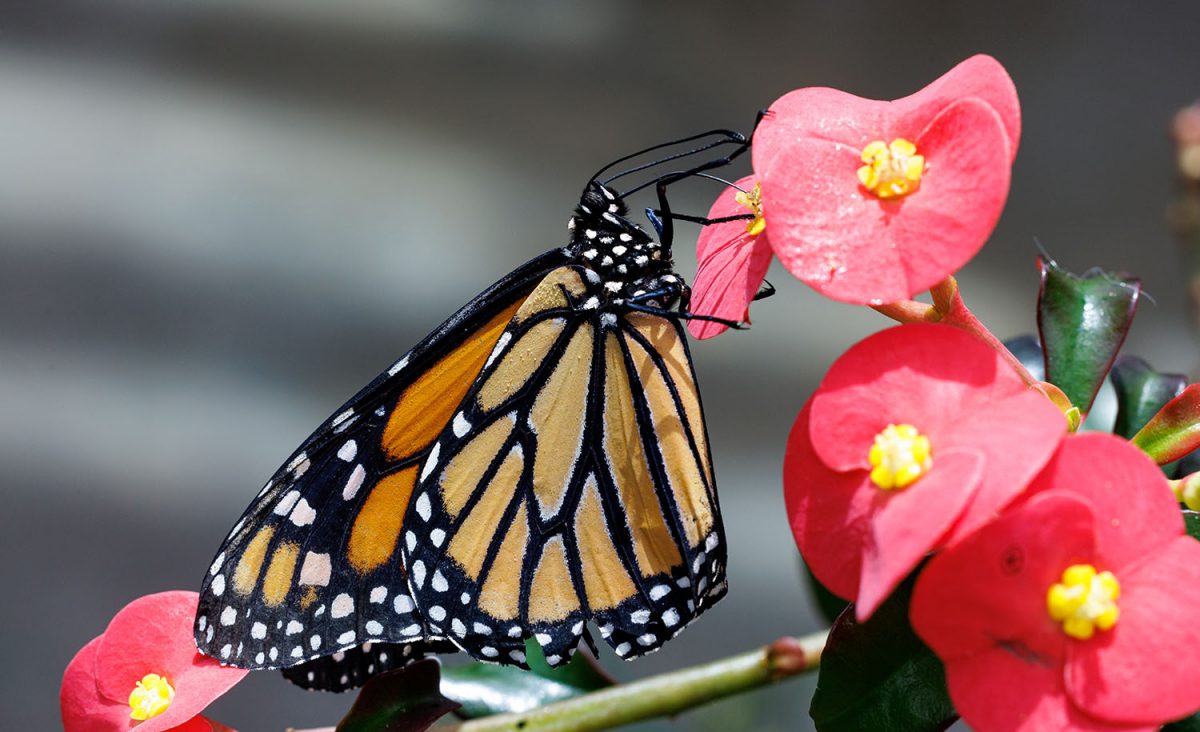Chattanooga, Tenn. (June 10, 2024) – Pollinators. They’re kind of a big deal.
From iconic Monarch Butterflies and humble honey bees to fast-flying hummingbirds and acrobatic … lemurs?! … the animals that help plants reproduce are collectively known as “pollinators.” Whether intentional or accidental, the actions of pollen-transporting species contribute tremendously to the health of their respective ecosystems and are responsible for a shocking amount of the food we eat.
That’s why the Tennessee Aquarium encourages guests to “bee” on the lookout for these incredible critters while visiting its campus during Pollinator Week from June 17 to 23.
To help raise awareness of pollinators’ importance and challenges, the Aquarium will host a flurry of events during Pollinator Week to engage guests about these remarkable animals and their role in our ecosystem. Daily between 10 a.m. and 2 p.m., Aquarium educators will share tips on native pollinator-friendly gardening practices, offer guidebooks with suggestions for protecting pollinators in your yard, and host pollinator-themed games and activities for visitors of all ages.

The benefits of the human-pollinator relationship are a two-way street. According to the Pollinator Partnership, a nonprofit dedicated to raising awareness about the role pollinators play, pollinators are responsible for roughly one of every three bites of food we eat and propagate over 180,000 different plant species — including more than 1,200 food crops.
Despite their importance, pollinator populations are in decline. Colony collapse disorder imperils the European Honey Bees, which are critical in food crop production. According to the U.S. Fish and Wildlife Service, habitat loss due to roadway construction and non-native landscaping or gardening removes vital food resources and nesting sites relied upon by many pollinators.
During their visit, guests can also explore the Pollinator Pathway, a self-guided experience on the Aquarium Plaza that winds through gardens filled with native plants that offer ample habitat for resident and flutter-by pollinators. Created in partnership with the Tennessee Department of Transportation’s (TDOT) Pollinator Habitat Program, the Pathway features permanent signage describing pollinator behavior and steps to enticing them to your yard, as well as detailing the Association of Zoos and Aquariums’ Saving Animals From Extinction (SAFE) program for Monarch Butterflies.

A Monarch Butterfly caterpillar eats milkweed on the Tennessee Aquarium plaza.
The Aquarium’s native plant expert and caretaker of the plaza gardens will also give away more than 500 native plant plugs and 400 native seed packets while supplies last. These giveaways feature pollinator favorites like Common Milkweed, Swamp Milkweed, Butterfly Weed, and Joe-Pye Weed. They are ready to be planted immediately to begin your journey toward aiding native pollinator species.
The fun continues beyond the Aquarium. Across the street at the IMAX 3D Theater, fan-favorite giant screen film Flight of the Butterflies 3D returns with daily showtimes during Pollinator Week (June 17-23). This thrilling tale follows the epic migration of millions of Monarch Butterflies from Canada to their overwintering sites in the mountains of Central Mexico. With stunning 3D effects, viewers will feel immersed in the drama and beauty of these remarkable insects as they undertake a 2,500-mile journey that defies belief.

A Monarch Butterfly in the Tennessee Aquarium’s Butterfly Garden.
If you’re feeling anxious about insects, you might prefer dropping by the theater to check out the follow-up to Inside Out, the coming-of-age film by the masters at Pixar Animation Studios. Screened in 2D, Inside Out 2 continues the story of 11-year-old girl Riley as she grapples with complicated new emotions brought on by the onset of adolescence. Inside Out 2 will be shown daily June 13-27.
For tickets, showtimes, and additional information, visit tnaqua.org/imax/.
Learn more about pollinators at tnaqua.org/pollinators/.